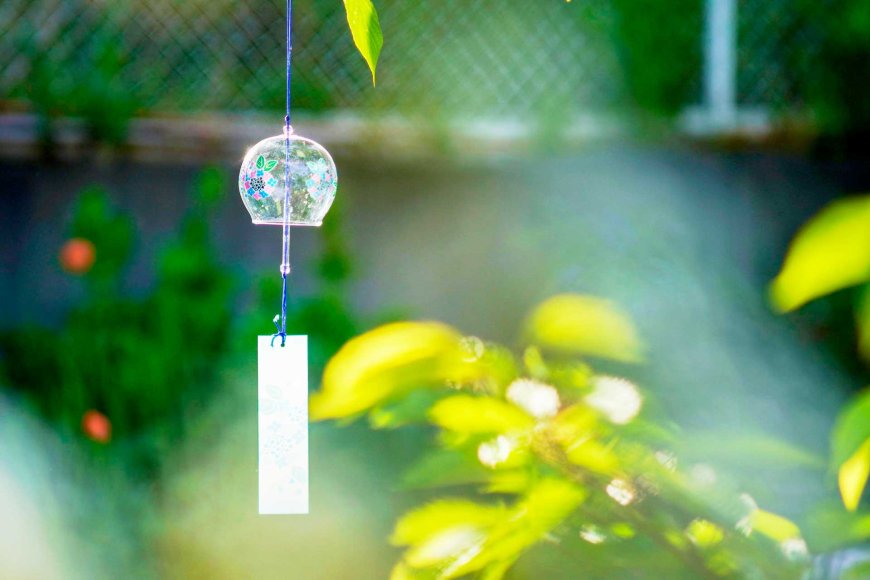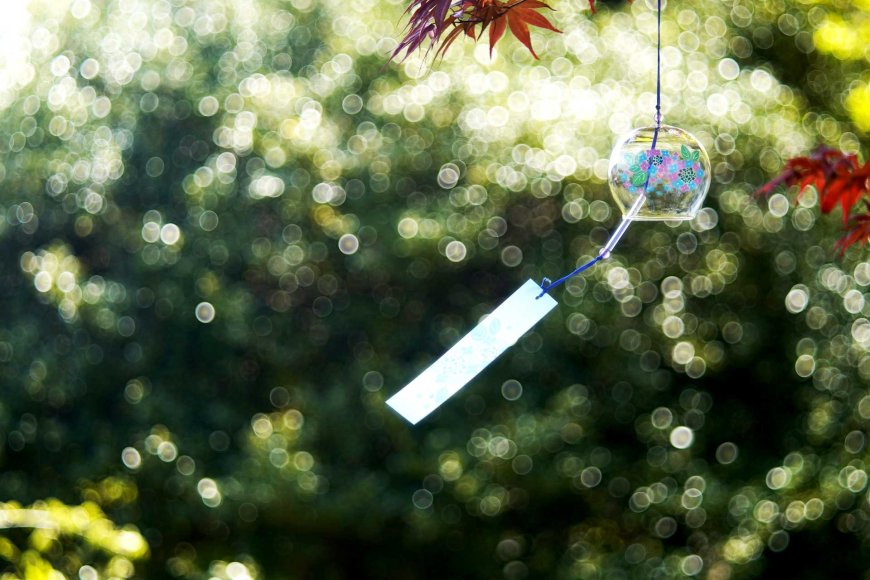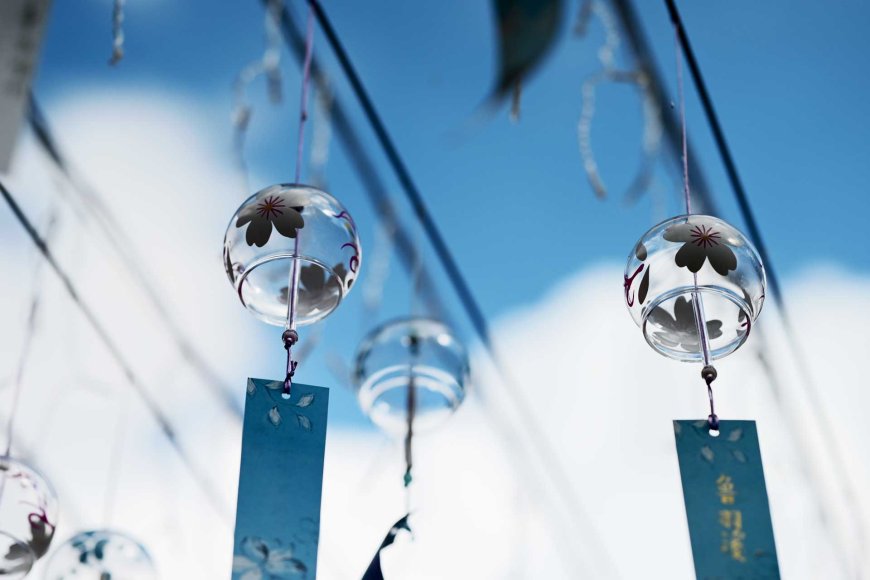Fūrin: The Melodic Chimes of Japanese Summer
The gentle sound of fūrin, or wind chimes, is a quintessential part of the Japanese summer experience. This traditional object not only provides a refreshing breeze but also embodies the essence of Japan's rich cultural heritage.

The Harmonious Blend of Tradition and Modernity
Japan is a country where tradition and modernity seamlessly intertwine, creating a unique cultural tapestry. Among the many traditional Japanese items that have endured through the centuries, the fūrin, or wind chime, stands out as a symbol of the summer season. This simple yet elegant object is not just a decorative item but carries a profound cultural significance that resonates deeply with the Japanese way of life.
A Brief History of Fūrin
The origins of the fūrin can be traced back to ancient China, where similar wind chimes, known as fengling, were used. They were initially brought to Japan by Buddhist monks around the Nara period (710-794 AD). These early wind chimes were used to ward off evil spirits and bring good fortune. The belief was that the sound produced by the chimes could purify the environment and protect against evil influences.
During the Edo period (1603-1868), fūrin became popular among the common people. Artisans began crafting them from glass, a technique learned from Dutch traders. These glass fūrin became particularly popular in Edo (now Tokyo), where they were hung in the eaves of houses to create a refreshing sound during the hot summer months. Over time, fūrin evolved into a symbol of summer, celebrated for its delicate sound and aesthetic appeal.

The Art of Fūrin
Fūrin come in various shapes, sizes, and materials. Traditional fūrin are often made from glass, metal, or ceramic. The shape of a typical fūrin resembles a small bell, with a clapper suspended inside. Attached to the clapper is a paper strip known as a tanzaku, which catches the wind and creates movement, causing the clapper to strike the sides of the bell. The sound produced by a fūrin is light, clear, and melodious, evoking a sense of coolness that contrasts with the heat of summer.
Artisans who create fūrin are highly skilled and take great care in crafting each piece. Glass fūrin are particularly popular due to their transparent beauty and the pleasant sound they produce. The process involves blowing molten glass into the desired shape and then carefully painting the surface with intricate designs, often depicting nature scenes, flowers, or traditional Japanese motifs. The artistry of fūrin is appreciated not only for its auditory charm but also for its visual appeal.

Fūrin and Japanese Culture
In Japan, the sound of fūrin is more than just a pleasant noise; it is a soundscape that evokes the essence of summer. As the wind blows through the fūrin, its gentle sound brings a sense of tranquility and calmness. For many Japanese, the tinkling of fūrin is associated with childhood memories of summer vacations, fireworks festivals, and the Obon season, a time to honor and remember ancestors.
Fūrin are often hung in the eaves of houses, on verandas, or in gardens, where they can catch the breeze and fill the air with their soothing sound. They are also popular in temples and shrines, where rows of fūrin create a harmonious chorus that enhances the spiritual atmosphere. Some festivals and events are dedicated to fūrin, where visitors can enjoy the sight and sound of hundreds of wind chimes displayed together.

Fūrin Festivals and Events
Several festivals across Japan celebrate the beauty of fūrin. One of the most famous is the Kawagoe Fūrin Fair, held at Hikawa Shrine in Saitama Prefecture. During the summer, the shrine's grounds are adorned with thousands of colorful fūrin, creating a spectacular visual and auditory experience. Visitors can purchase fūrin and write their wishes on the tanzaku before hanging them up, participating in a tradition that blends aesthetics with spiritual practice.
Another notable event is the Fūrin Market at Nishiarai Daishi Temple in Tokyo, where various types of fūrin from all over Japan are showcased and sold. These events provide an opportunity to appreciate the craftsmanship of fūrin makers and to experience the cultural significance of these wind chimes firsthand.

Fūrin in Modern Times
In contemporary Japan, fūrin continue to be cherished as a traditional symbol of summer. They are popular as souvenirs and gifts, often given to bring good luck or to convey a wish for cool, refreshing days. While the hustle and bustle of modern life may sometimes overshadow the subtle sound of fūrin, their charm endures, offering a moment of peace and a reminder of the beauty of nature.
With the rise of environmental awareness, fūrin have also been embraced as eco-friendly items. Their gentle sound provides a natural alternative to electronic soundscapes, encouraging people to reconnect with the simplicity of nature. As people seek ways to reduce stress and find balance in their lives, the soothing sound of fūrin offers a timeless and effective means of relaxation.

A Symbol of Serenity and Summer in Japanese Culture
The fūrin is more than just a decorative item; it is a symbol of Japanese culture, a harbinger of summer, and a reminder of the beauty in simplicity. Whether hanging from the eaves of a traditional Japanese house or displayed at a modern fūrin festival, these wind chimes continue to captivate with their delicate sound and artistic design. In a world that is constantly moving, the gentle sound of a fūrin offers a moment of stillness, a brief respite that transports one to the serene, nostalgic days of a Japanese summer.
Find Cheap Flight Tickets to any Destinations in Japan and the Philippines
Nipino.com is committed to providing you with accurate and genuine content. Let us know your opinion by clicking HERE.































































